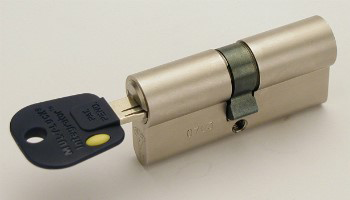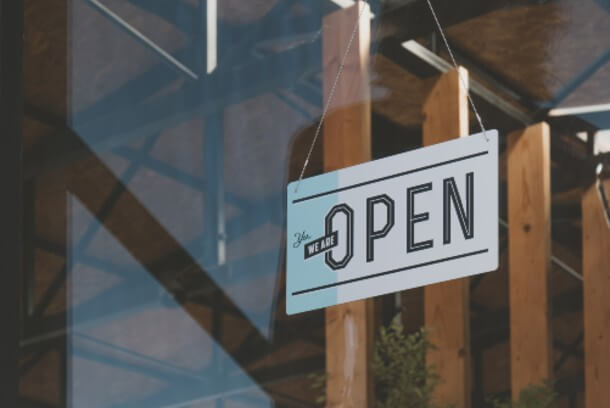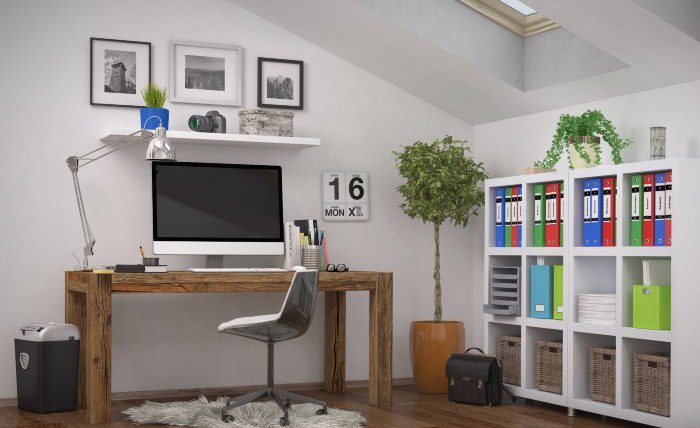As a business owner, you have a lot on your daily and weekly to do list – from managing staff and payroll through to keeping on top of sales figures and marketing activity. But how high up does security feature on your to do list?
Security covers a whole range of issues; the people you employ, the security products you have in place, your processes and policies to name a few.
The tips below have been written to help you think through the different areas of security for you and your company and can be used as a checklist to ensure you have the main areas covered.
- Practical Security Advice for Small Businesses
Some security measures are not complicated and do not require a lot of investment but could significantly reduce the risk of a security breach.
- Check references of new employees to ensure they are trustworthy and have no history of theft.
- Have a visitor policy such as a sign-in book so that the entry and exit time of visitors can be tracked and monitored. This is also essential should there be a fire in the building.
- Create procedures for tasks involving cash or finances such as counting cash, filing expenses and generating invoices.
- Take regular inventories. If you sell products, make sure you do a regular stock take to ensure that the numbers on your spreadsheet match what’s in the stock room. This way, you will notice if there are any discrepancies and it will act as a deterrent to anyone tempted to help themselves.
- Tag equipment / Secure items to the wall or floor. Tagging equipment with UV pens will act as a deterrent to thieves. For some items, it may also be sensible to secure them to the wall or floor to act as a further deterrent.
- Destroy sensitive documents If you have a lot of paper with sensitive business or customer information then investing in a shredder could be well worth while, so that you can ensure any confidential data doesn’t get into the wrong hands. If you have a lot of paper shredding to do regularly, consider contracting this out to a specialist shredding firm.
- Use trusted contractors. Have a list of trusted contractors and suppliers that you use as a business. If you try a new contractor, ask for a reference and follow it up, you should also check out their reviews online.
Recommended Security Products for Small Businesses
There are a whole host of security products out there that you could invest in to help keep your business more secure, our recommendations include:
- Master key systems allow individuals to access a building or parts of a building using just one key. Each key can be pre-set to allow different levels of access within a building, meaning individuals can only access areas they are authorised to.

- Security grilles offer additional security and protection preventing intruders entering a property’s windows and doors. They still allow light and air into a room and are fully retractable in the event of a fire.
- Electronic access systems allow designated and approved users to access areas using a pin code or token. The doors lock automatically once the person has passed through them. Pin codes or access levels can be changed as necessary and without the need for a change of locks should a key be lost. In the event of a fire – all the doors automatically unlock.
- Lockable filing cabinets are a secure way to keep any paperwork or sensitive data.
- Fire safes are a secure way to protect important documents, also offering protection against fires. Most fire safes will give up to 2 hours protection against fire and extreme heat.

- Cash safes are an essential item for businesses that handle a lot of cash. If you manage a retail outlet or a pub then protecting access to your hard-earned income before you get to bank it is an essential security measure to put in place. Not only that, but it can help lower your insurance premiums in some cases.
- Key cabinets are an option for businesses with multiple rooms or locks that require individual keys. Whether you are a small hotel or an estate agent handling a number of keys, a key cabinet will provide secure storage giving both you and any landlords peace of mind. Key cabinets also provide a high level of accountability enabling the keys to be signed in and out.
- Installing an alarm will deter would be burglars before they even try to enter your building. In addition, put up signs to warn thieves of the presence of the alarm. This will act as a strong deterrent.
- External lighting around your premises can deter thieves looking for a secluded and dark entry point. Lighting can be set on a timer for the duration of a night or be activated by movement to ensure there are no vulnerable points around the building.
- CCTV is also an option to protect your business, but you need to be aware of and comply with certain data protection regulations.
Cyber Security Tips for Small Businesses
Whilst the points above cover physical items you can invest in or put in place to protect your business, there is also the electronic aspect of the business to think about. Cyber security and protecting your electronic and computer assets are of vital importance in this modern age.
- Strong passwords are important to help prevent criminals from guessing your password. Make sure they cannot be guessed or predicted. Use a combination of letters, capitals, symbols and numbers. Change your password regularly (each month) to make it even harder for data thieves.
- Password managers are an extremely useful way to hold passwords for multiple systems and online tools. Staff can be assigned strong passwords which they cannot see but the password manager will remember them when a given portal is accessed.
- Install antivirus software on your computer systems to protect your business from ‘malware’ (malicious software). Always install the latest updates which may include system patches protecting you from new hacks.
- Removable media such as SD cards and USB sticks allow data to be transferred out of the business. Ensure you have a strict policy on their use and that staff are trained and adhere to it. Where possible encourage employees to transfer files via email or use cloud storage.
- Data backups of your important files are really important in the event of a loss of data or a simple human error. The back up will save not only the inconvenience of any loss but also a lot of hours of work!
For more information on cyber security see the National Cyber Security Centre’s website.
Choose Thornhill to Help Secure Your Business
Here at Thornhill Security, we’ve been helping small businesses like yours for over 50 years and have worked across a range of industries.
We are MLA (Master Locksmith Association) and BVSTA approved and have helped all sizes of business from sole traders through to large corporate firms with their security needs.
For more information about our products and services or advice on securing your business call our experienced team on 0117 967 4994 and we’ll find the right solution for you.


